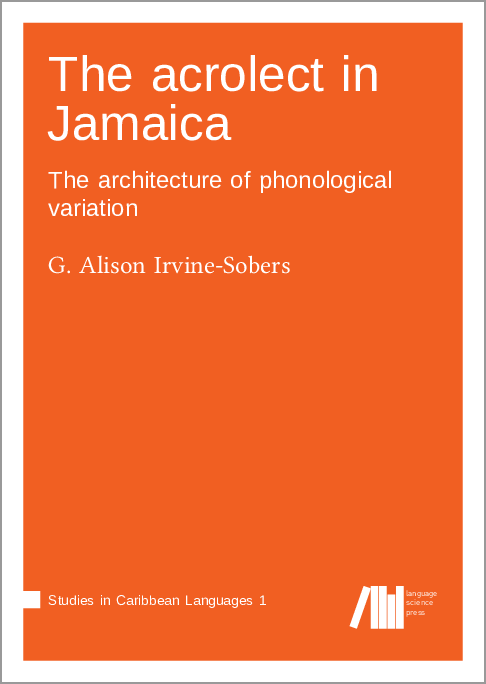We log anonymous usage statistics. Please read the privacy information for details.
The acrolect in Jamaica: The architecture of phonological variation
Synopsis
An ability to speak Jamaican Standard English is the stated requirement for any managerial or frontline position in corporate Jamaica. This research looks at the phonological variation that occurs in the formal speech of this type of employee, and focuses on the specific cohort chosen to represent Jamaica in interactions with local and international clients. The variation that does emerge, shows both the presence of some features traditionally characterized as Creole and a clear avoidance of other features found in basilectal and mesolectal Jamaican. Some phonological items are prerequisites for “good English” - variables that define the user as someone who speaks English - even if other Creole variants are present. The ideologies of language and language use that Jamaican speakers hold about “good English” clearly reflect the centuries-old coexistence of English and Creole, and suggest local norms must be our starting point for discussing the acrolect.




